Sunday Feb 22, 2026
Sunday Feb 22, 2026
Friday, 13 October 2017 00:00 - - {{hitsCtrl.values.hits}}
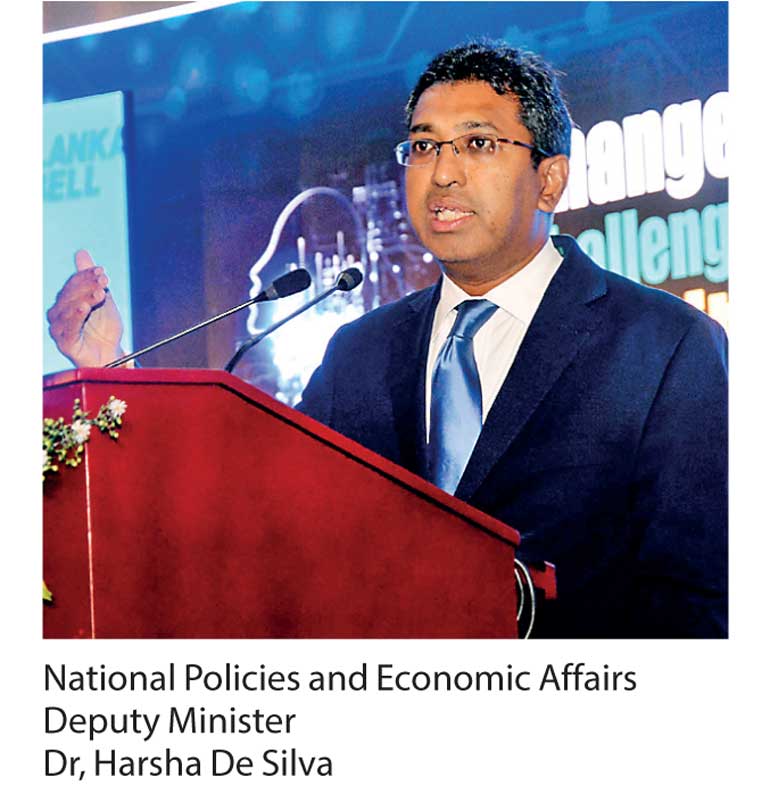
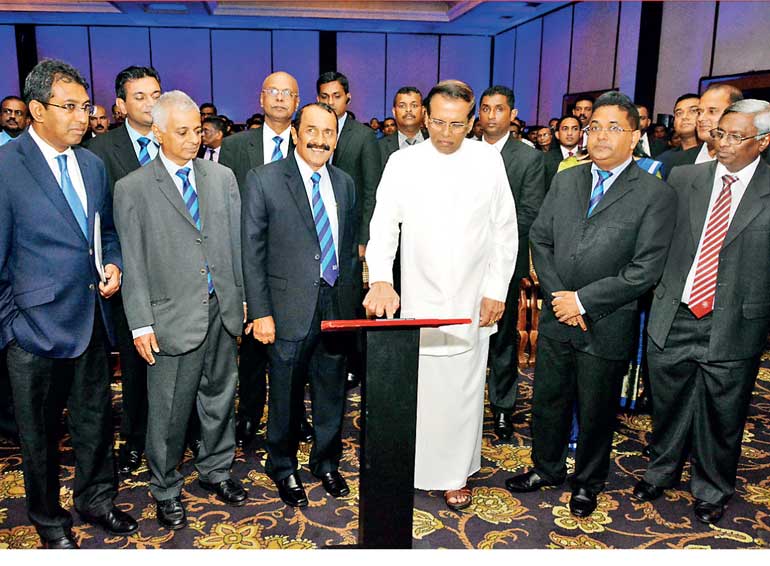
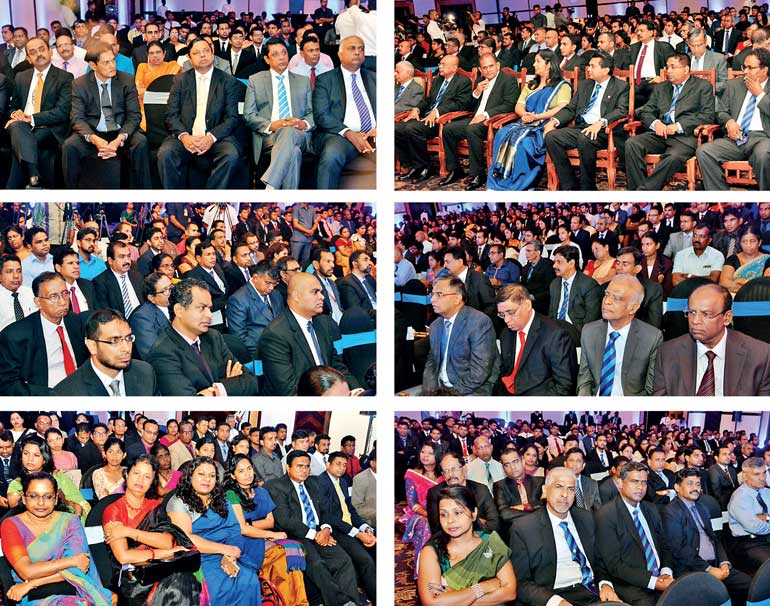
By Chathuri Dissanayake
Stressing the need to move away from heavy investment by the State in infrastructure, Deputy Minister Dr. Harsha Silva advocated tradable growth to boost economic growth with Government focus shifting to human resource development, while speaking at the Annual Conference of AAT (Association of Accounting Technicians) Sri Lanka earlier this week.
“We are facing considerable challenges in our economy. It is true the economy touched 9.1% in 2012 but what happened in 2013? In 2013 it came down. Why couldn’t we keep 2012? That is because that economic model was based on State-driven, debt-driven, non-tradable growth, which meant the Government borrowed heavily from international agencies and sovereign bonds and put that money into the non-tradable sector,” the Economic Affairs Deputy Minister said.
“What we saw was borrowed money being used for construction-related expenditure, and that was driven by the State.”
The Minister attributed the surging economic growth and the subsequent collapse over the past few years to major infrastructure development projects driven by the State.
Although the country’s economic growth was predominantly driven by the construction boom, Sri Lanka can no longer rely on non-tradable sectors for economic growth, he said.
“The bunching of foreign debt payment from 2018 to 2022 is close to $ 13 billion. This amount needs to be paid back. What ability do we have to continue to borrow in the international marketplace and bring that money into the construction and non-trade sector?” questioned Dr. De Silva, adding that the country’s number one recurrent expenditure has become debt interest payments.
To convert the challenge of low-growth the country faces, the Deputy Minister advocated a structural shift in its growth path.
“There is no point in having 9% growth in GDP and have it drop down to 3%. We need a structural break in the steady stage growth path from something like 4-5% to 9% GDP growth path,” he said.
This requires the Government to re-strategise its investments, moving away from spending in infrastructure to focus on developing human resource capital. He stressed that a drop in revenue has also led to limitations in spending on education and other human resource development.
According to Dr. De Silva, Government revenue has dropped to 5% of GDP from 22% of GDP recorded in the 90s. This has led to curtailments in money available for spending in improving access to education and the quality of education, which has drastically reduced Sri Lanka’s competitiveness in the global market.
According to the Minister, 60-65% of capital expenditure has gone into infrastructure development, which the Government aims to change in the upcoming budget.
Dr. De Silva advocated a shift to Build Operate and Transfer or Hire Purchase models to fulfill infrastructure needs, especially buildings of government institutions, including education. According to him, this will lead to a Rs. 15 billion saving at the Education Ministry alone.
“Let’s invest that money to buy computers, microscopes and Bunsen burners to focus on skills development,” he said.
Pix by Upul Abayasekera
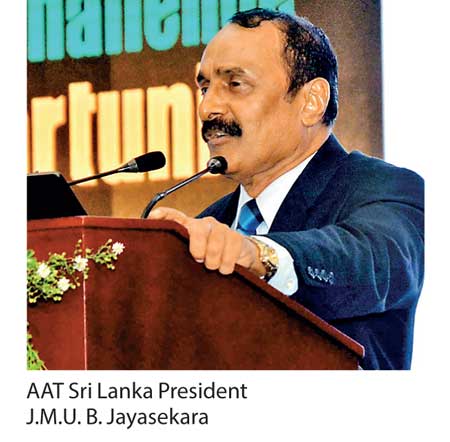 Calling for the creation of a separate service grade for public sector Accounting Technicians, AAT (Association of Accounting Technicians) Chairman J.M.U.U.B. Jayasekara claimed that state sector employees who are responsible for maintaining the financial records of the Government lacked the necessary knowledge and training to follow good accounting practices.
Calling for the creation of a separate service grade for public sector Accounting Technicians, AAT (Association of Accounting Technicians) Chairman J.M.U.U.B. Jayasekara claimed that state sector employees who are responsible for maintaining the financial records of the Government lacked the necessary knowledge and training to follow good accounting practices.
The Government does not employ an accrual basis for financial record keeping, although it is in line with international best practices for quality accounting and financial recordkeeping.
The reason was a lack of knowledge and ability on the part of Government workers responsible for the job, Jayasekara said while speaking at the inauguration of the 30th Annual AAT Sri Lanka Conference.
“Those who were recruited as management assistants don’t have the skills or the knowledge to do the job,” he said.
Jayasekara offered the assistance of AAT to train the current Management Assistants to carry out the job, while urging the Government to create a separate service category for Accounting Technicians.
He also appealed to the Deputy Minister of Economic Affairs, Dr. Harsha De Silva, to improve the accessibility of students in rural areas to education and the subsequent qualification offered by AAT, highlighting that in areas such as the North Central Province the number of AAT candidates was significantly lower than districts in the Western Province.
The Chairman also reminded the Minister of a promise Prime Minister Ranil Wickremesinghe made to facilitate the teaching of AAT in schools, which would help commerce students gain accounting knowledge and additional qualification at the time of them leaving school.
Stressing the need to increase the number of accounting professionals in the country, which hovers around 10,000 at present, Jayasekara also said that a higher number of accountants in the country could help the development drive as well.
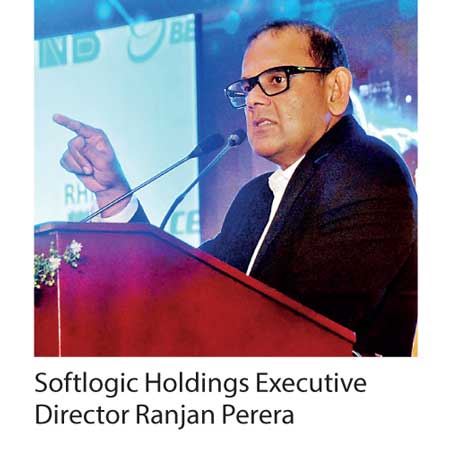 Stressing the need to move with the current dynamic business environment, Softlogic Executive Director Ranjan Perera urged accounting professionals to acquire the skills needed to move with the times.
Stressing the need to move with the current dynamic business environment, Softlogic Executive Director Ranjan Perera urged accounting professionals to acquire the skills needed to move with the times.
In keeping with the theme of the conference, ‘Change: challenge to an opportunity’, Perera told the gathering of accounting professionals at the ATT Annual Conference to “move along with the technology”, urging the younger professionals to not limit themselves in accounting.
“There are plenty of packages available for you, and if they don’t match then you can develop a new one,” he said.
Bringing in examples of the once popular global brand and local entity Celtel, Perera said that if companies and professionals don’t change with time, they will risk losing in the current competitive environment.
Perera stressed that professionals also need to move along with the changing technology, adapting and acquiring new skills.
“There are 1.4 billion worth of handsets sold per month by Softlogic alone. You need to move along with the technology if not you will lose out,” he warned.